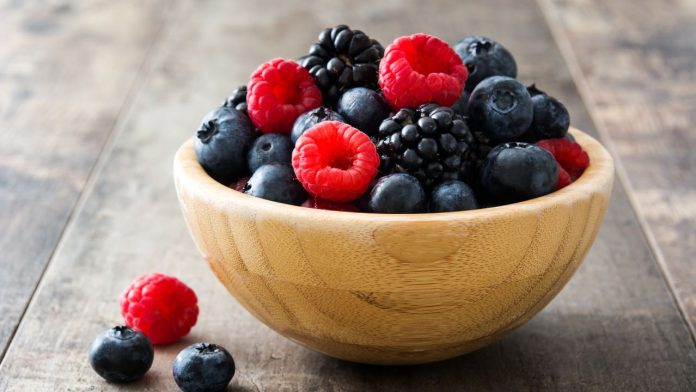While fruits are commonly known for their health benefits, specific fruits can be bad for senior individuals with gout. It is essential to understand the relationship between gout and fruit consumption to effectively manage this condition.
Understanding Gout
Gout is a type of arthritis characterized by the accumulation of uric acid crystals in the joints. It occurs due to the body’s inability to properly metabolize uric acid, leading to high levels in the blood. Factors such as genetics, diet, and lifestyle contribute to the development of gout. Common symptoms include sudden and severe joint pain, swelling, redness, and limited mobility.
Gout and Diet
Diet plays a significant role in managing gout. Certain foods can trigger gout attacks by increasing uric acid production or inhibiting its elimination. Red meat, seafood, organ meats, alcohol, and sugary beverages are among the culprits. Adopting a balanced and gout-friendly diet is crucial for preventing flare-ups and minimizing symptoms.
The Impact of Fruits on Gout
Fruits are generally regarded as an essential component of a healthy diet due to their rich nutrient content and antioxidant properties. However, some fruits may contain compounds, such as purines, that can contribute to elevated uric acid levels and trigger gout attacks. Making informed choices about fruit consumption is key for individuals with gout.
High-Purine Fruits
Purines are natural compounds found in various foods, including fruits. When the body breaks down purines, uric acid is produced. Fruits high in purines include certain types of berries, such as strawberries and raspberries, as well as grapes, cherries, and pineapples. It is important to be cautious with these fruits to manage gout effectively.
Citrus Fruits and Gout
Citrus fruits are known for their high vitamin C content, which offers various health benefits. However, some citrus fruits, such as oranges and grapefruits, contain moderate levels of purines. While the purine content in these fruits is not extremely high, individuals with gout should monitor their intake and consider moderation.
Tropical Fruits and Gout
Tropical fruits are beloved for their unique flavors and textures. However, some tropical fruits, including mangoes and durian, can potentially aggravate gout symptoms due to their moderate to high purine content. People with gout should be mindful of the quantity consumed and consider alternatives with lower purine levels.
Berries and Gout
Berries are often hailed as superfoods due to their antioxidants and other beneficial compounds. However, certain berries, such as strawberries, raspberries, and blueberries, contain moderate levels of purines. While the impact on uric acid levels may vary, individuals with gout should be mindful of their berry consumption.
Stone Fruits and Gout
Stone fruits, including peaches, plums, and nectarines, are delicious and nutritious. However, they contain moderate levels of purines, which can contribute to gout symptoms. While stone fruits offer various health benefits, individuals with gout should limit their intake and consider portion sizes to manage uric acid levels effectively.
Grapes and Gout
Grapes, whether consumed fresh or as raisins or wine, contain moderate levels of purines. Additionally, grapes have a natural compound called resveratrol, which has been associated with potential health benefits. While grapes may not have a significant impact on uric acid levels, moderation is still advised for individuals with gout.
Melons and Gout
Melons, such as watermelon and cantaloupe, are refreshing and hydrating fruits. However, certain melons have a moderate purine content, which may influence uric acid levels. Balancing portion sizes and considering the overall purine load from other food sources can help individuals with gout enjoy melons without triggering symptoms.
Apples and Gout
Apples, a widely available and versatile fruit, are generally considered beneficial for overall health. While apples have a low purine content, some individuals with gout may be sensitive to their fructose content. Moderation is key, and individuals should be mindful of their specific reactions to apples.
Bananas and Gout
Bananas are often recommended as part of a balanced diet due to their potassium content and other nutritional benefits. While bananas have a low purine content, individuals with gout should be aware that they contain a small amount of fructose. Moderation and personal observation are important when incorporating bananas into a gout-friendly diet.
Pineapple and Gout
Pineapple contains the enzyme bromelain, which has been studied for its potential anti-inflammatory properties. However, bromelain may also have an impact on gout symptoms. While pineapple can be enjoyed in moderation by some individuals with gout, those who are sensitive to bromelain may need to limit their consumption.
Pomegranates and Gout
Pomegranates are known for their antioxidant properties and potential health benefits. While there is limited research on the direct impact of pomegranates on gout, their moderate fructose content should be taken into consideration. People with gout should observe their individual responses to pomegranates and adjust their intake accordingly.
Dried Fruits and Gout
Dried fruits are concentrated sources of nutrients and can be a convenient snack option. However, the drying process removes water and concentrates the purine content, making them potential triggers for gout attacks. Individuals with gout should exercise caution when consuming dried fruits and consider alternatives with lower purine levels.
Fruit Juices and Gout
Fruit juices, especially those made from high-purine fruits, can be problematic for individuals with gout. Juices are often high in sugar and lack the fiber present in whole fruits, which can contribute to elevated uric acid levels. Choosing whole fruits over juices and opting for gout-friendly varieties is advisable.
Canned Fruits and Gout
Canned fruits may contain added sugars and preservatives, making them less desirable for individuals with gout. The high sugar content can contribute to weight gain and increased uric acid production. Fresh or frozen fruits are generally a better choice, allowing individuals to control their intake and minimize potential gout triggers.
Fruit Consumption Tips for Individuals with Gout
For individuals with gout, following specific guidelines can help manage symptoms effectively while still enjoying the benefits of fruits. These tips include selecting low-purine fruits, moderating portion sizes, spreading fruit consumption throughout the day, and considering the overall dietary purine load.
Consulting a Healthcare Professional
Individuals with gout should consult healthcare professionals or nutritionists for personalized advice tailored to their specific needs. These professionals can provide guidance on managing gout through diet, recommend suitable fruit choices, and help create a comprehensive dietary plan for gout management.
The Final Note
In conclusion, while fruits are generally considered healthy, certain fruits can pose challenges for individuals with gout due to their purine or fructose content. By making informed choices, practicing moderation, and considering individual sensitivities, individuals with gout can enjoy a variety of fruits while effectively managing their condition.






















